Many were amazed when just two weeks ago the streets of Dresden turned into a huge dance floor and a colourful and dancing crowd of people rolled through the city like a happy caterpillar. Under the motto "Do we always have to get loud first? - Vote and dance for Tolerance" the fifth Tolerade took place and demonstrated with a lot of heart and even more bass for an open and tolerant togetherness. What this is all about and why every year hundreds of Dresden women* put their time and energy into the Tolerade project is what this post wants to reflect once again
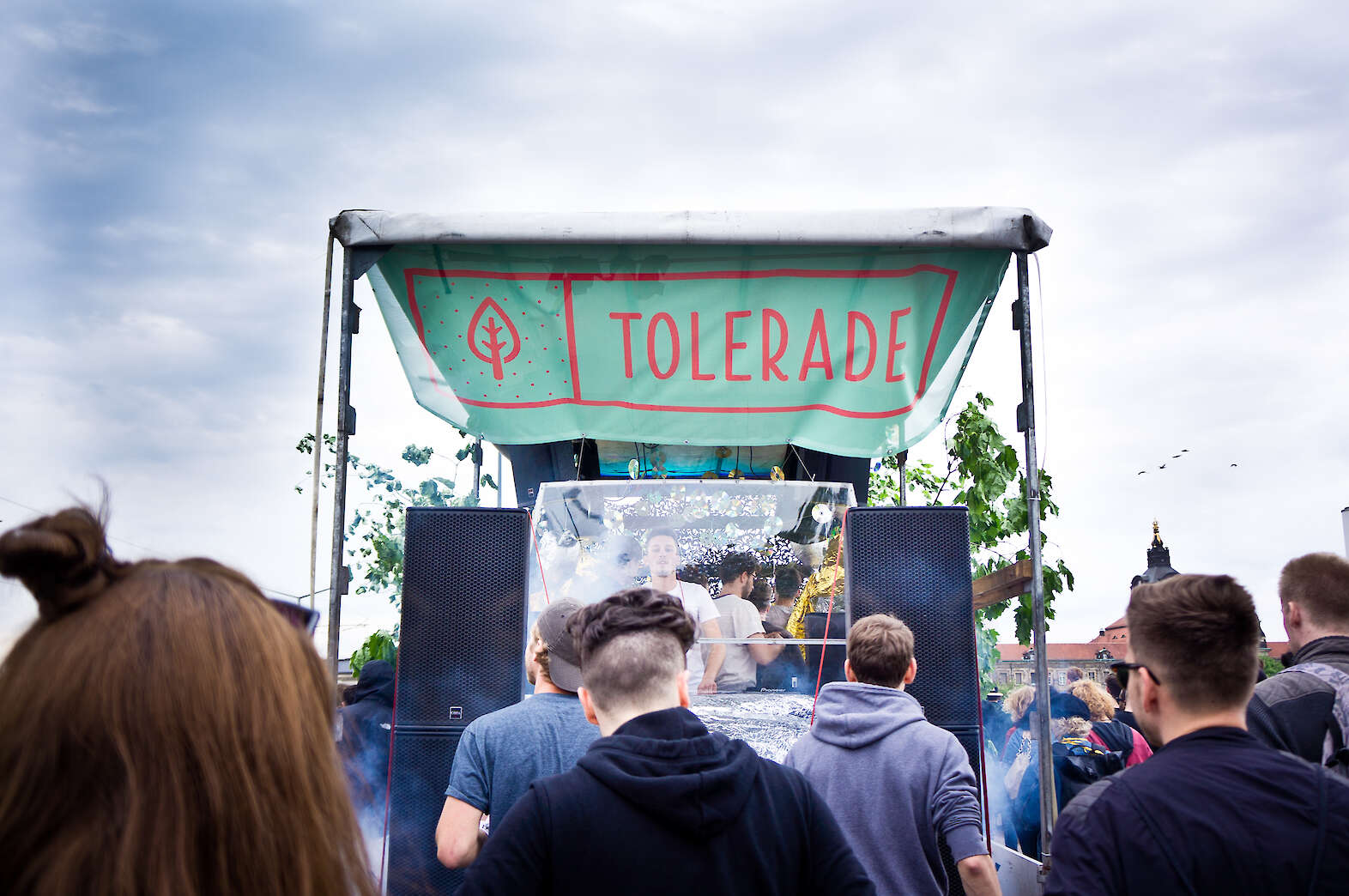
Monday, October 20, 2014. The new right-wing movement PEGIDA (Patriotic Europeans against the islamisation of Europe) gathers for the first time in Dresdens Oldtown to spread their racist, populistic and xenophobic grievances. In the months that followed, the number of participants rose rapidly and the ferosity intensified, so that the movement's obvious racism and hatred became easily noticeable and attracted the attention of the media.
Even though the numbers of participants have dropped significantly over the last years and at times only a rather miserable bunch of pegidists gather to forsakenly wave their black-red-golden flags around, they have now left more than four years of mischief behind them.
Whether PEGIDA profited from the strengthening of the AFD (Alternative for Germany; German political party) or vice versa doesn't really matter. What is important however, is that it is undisputed that the symbiotic interaction between the right-wing populist party and the Islam- and xenophobic organization has produced a „brown-blue monster“ that has meanwhile settled quite comfortably in the middle of society.
No special expertise is needed to notice that the political discourse is shifting further and further to the right. Racism hides behind a somewhat still tolerated "We're-still-allowed-to-say-that“ - mindset and discussions about terms like "home" and "security" is again en vogue - not only among hard-boiled AFD[right wing populists] or CDU [Merkel's party] voters. In such a context, tightened police laws and the pathological craving for "tougher intervention" and state control are not only the result of a vague sense of insecurity constantly reproduced from the right wing of society, but also the epitome of a more than disturbing paradigm shift within socio-political discourse.
Since words such as "Volk" and "race" sound a little too „Nazi“, instead "ethnocultural" concepts are packaged into rhetoric and talks German and/or European (leading) culture is focused upon, which some see as a threat leading to cultural alienation.
While people are still drowning in the Mediterranean Sea every day, NGOs which are working hard rescuing people out of the water are dragged to court under more than dubious pretexts and are treated as criminals; borders are sealed off and Fortress Europe is encompassed in more and more barbed wire; a „homeland ministry“ is founded in Bavaria - a symbolic political act that stands for the exclusive mentality of the eternally have-beens.
So far, not so good.
But what does all this have to do with the club and music scene? And to what extent is celebrating a political act?
First and foremost, it is the connecting, border-bridging aspect of music that brings people together - regardless of their origin, skin colour or sexual orientation. Clubs are public spaces where people can meet and have a good time together, because there's no separating you/we when people are celebrating - hedonism belongs to all of us.
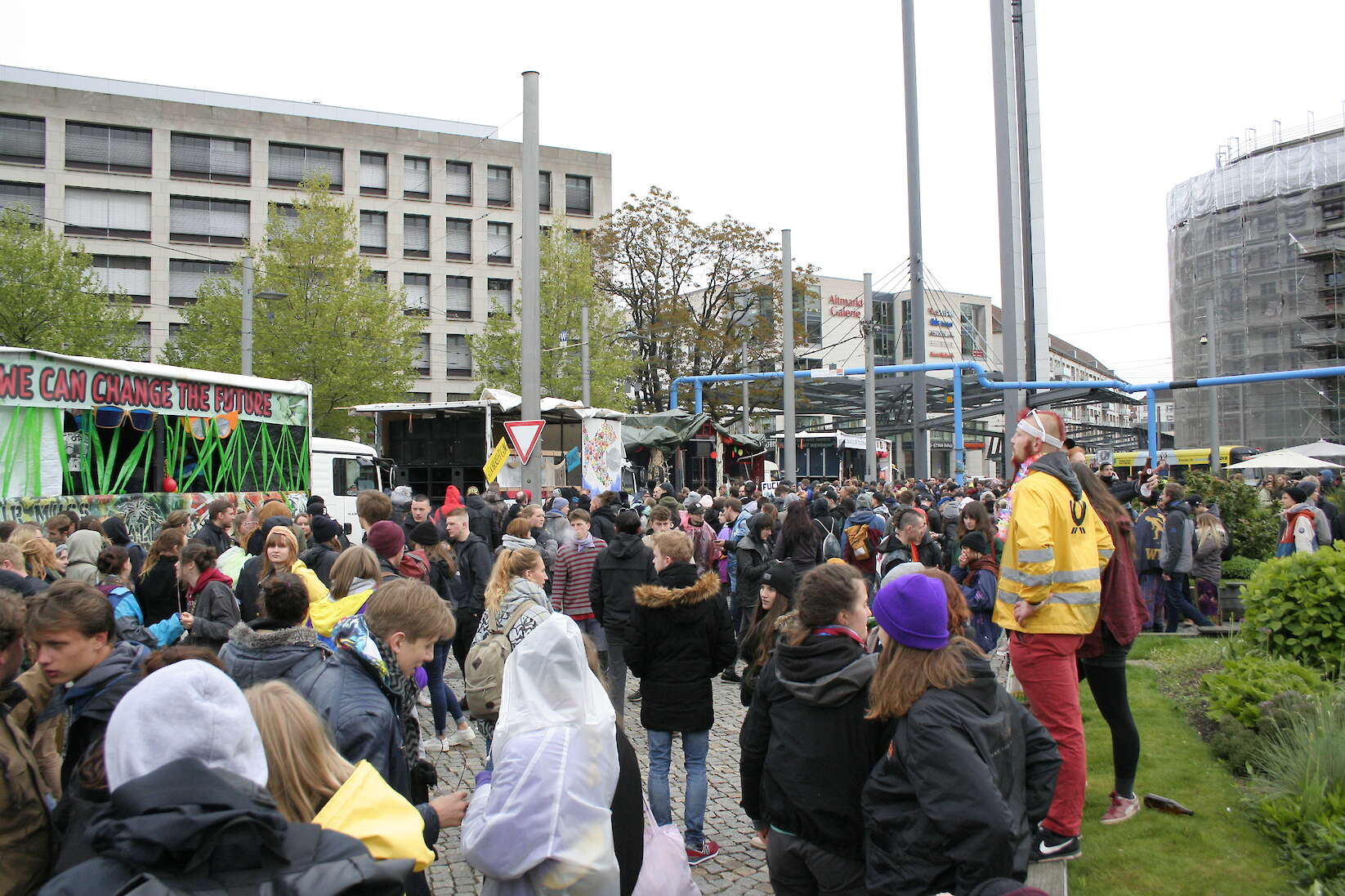
However, beyond that, the electronic subculture also offers a place within which visions of another society can be dreamed of and lived. And that's what it's all about - the question of what kind of society we want to live in, not only now, but also in the future. We could pull ourselves out of responsibility and leave the rhetoric to those reactionary forces which propagate exclusion and isolation instead of inclusion and tolerance, or alternatively we could stand up for solidarity, humanity and empathy in our dealings with one another.
This was also the thought of those who committed themselves to something new and joined together to form a loose initiative of creative artists to counter the increasingly cold climate in the city after the strengthening of PEGIDA in 2014/15. The plan to promote diversity, create cooperation within the Dresden club culture and to bring awareness into normal society was and is one of the main concerns of the participants. In this context and in cooperation with actors of the so-called „Hochkultur“ („advanced civilization“), the initiative celebrated its first Tole-Rave in 2015 in the Hellerau European Centre of Arts. This was followed by the first music-accompanied demonstration under the name Tolerade and, in September 2015, the bicycle demonstration Toleride to Freital.
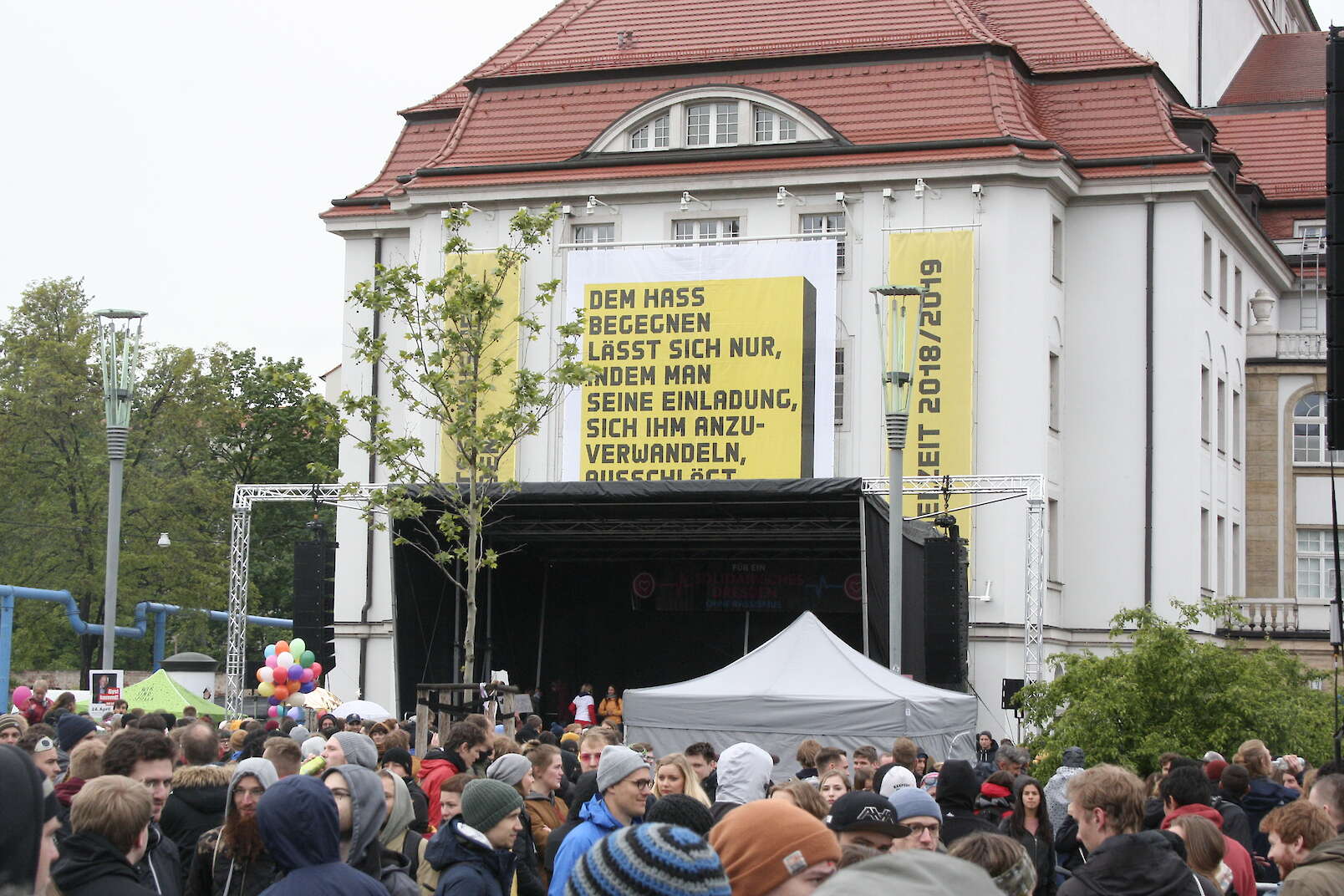
Soon after that, the once loose collective known as the Tolerave e.V. was founded, which to this day continues to stand up for a broad spectrum of social concerns. On the one hand, the aim is to sensitize people to the needs of refugees, migrants and other marginalized groups, but on the other hand it is also about achieving specific cultural policy goals, such as banning the party curfew during certain holidays, decriminalizing the Freetekk scene or protecting cultural spaces. In addition to curating concerts and parties, the association organises various discussion events, workshops and projects to develop concepts for awareness and a club door policy that is as non-discriminatory as possible. Within the framework of the celebration culture, safe spaces are to be created in which everyone can be as they want to be, without having to fear exclusion and discrimination.
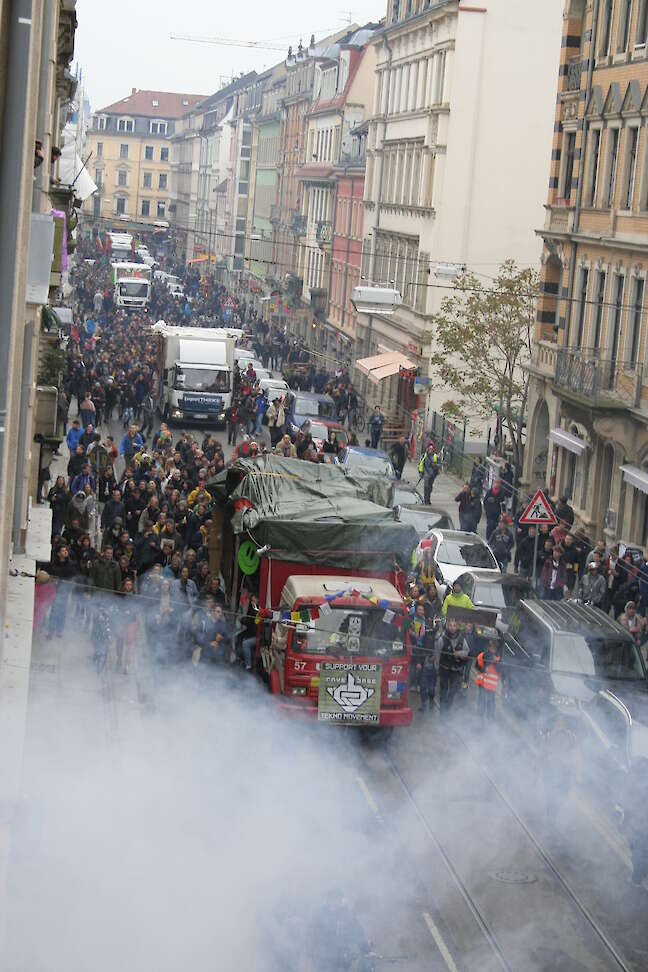
The annual Tolerade, a dance demonstration that carries the spirit and concerns of the Tolerave e.V. onto the streets to reach people who are not so much rooted in the electronic subculture and club culture, is no longer the only main project of the association, but certainly still a project that lies at the very heart of the organisers' interests. The association is supported by countless artists, musicians, club operators, non-profit organizations, civil society actors, volunteers and may more. To name just a few: WOD - Initiative Weltoffenes Dresden (Initiative for an open-minden Dresden), Arche NoVa e.V., Seebrücke Dresden (Sea bridge Dresden), the Saxon Refugee Council, the Dresdner Tafel e.V., the Love Foundation, Mission Lifeline and many other supporters – the list goes on and on.
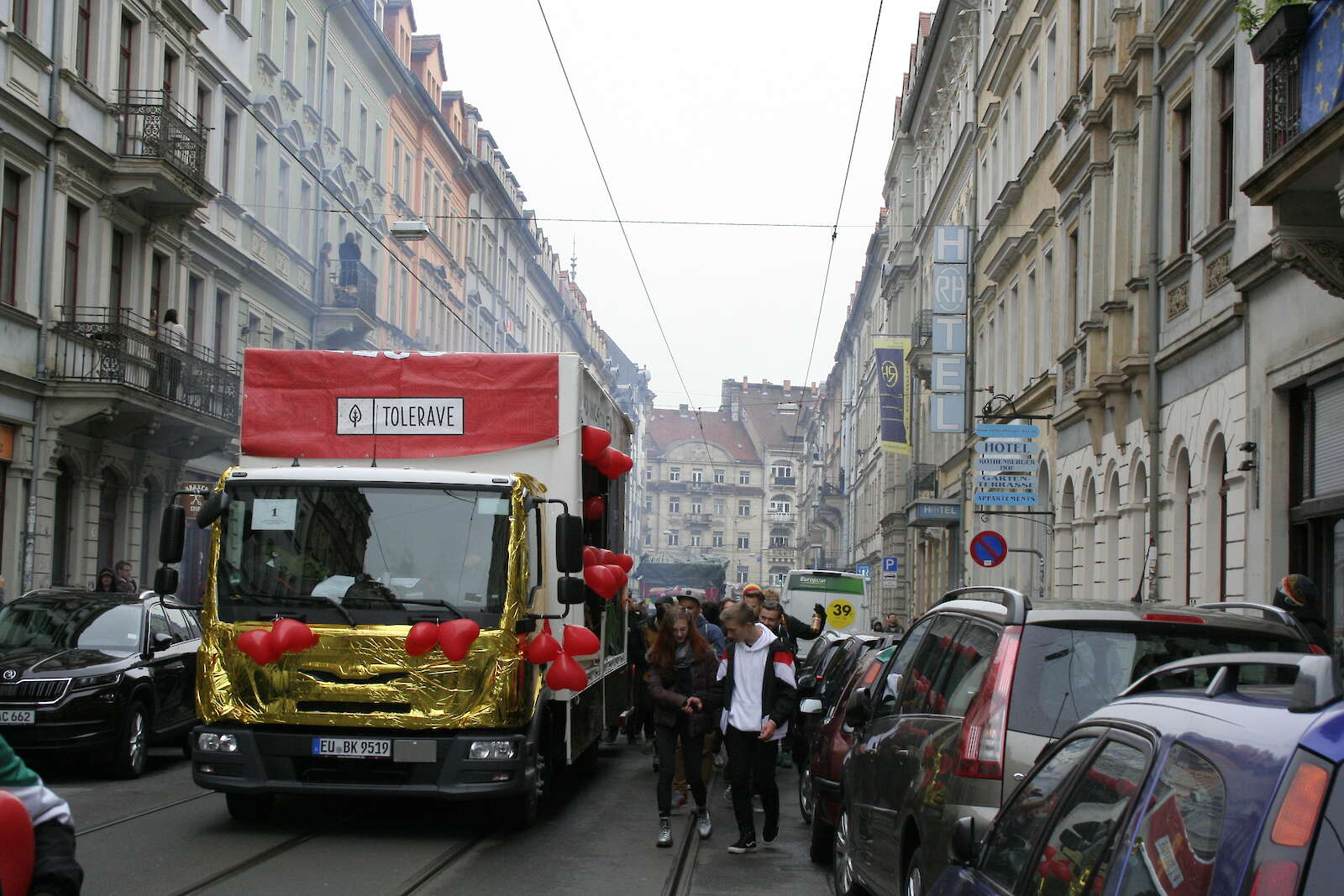
In the light of the upcoming European and local elections and under the motto "Do we always have to get loud first? - Vote and Dance for Tolerance", the fifth Tolerade took place on Saturday before last.
In spite of adverse weather conditions and single-digit temperatures, no less than 10,000 people came together to dance to the buzzing of the subwoofers for tolerance - and against the brown-blue manifestations. The 16 cars and trucks were designed and operated by various DJ collectives from Dresden, so that from A like Acid, over to Drum'n'Bass, Goa or House to T like Techno and all kinds of electronic music could be danced to. The route deliberately did not only lead through the Neustadt, which is generally considered to be the bubble of the "left-green idealists", but also meandered through the touristy Old Town to achieve an even greater reach. The first in-between talks & rally were also held here, at which the initiatives involved, such as Herz statt Hetze, Atticus e.V., the critical physicians* and many more, were heard giving speeches.
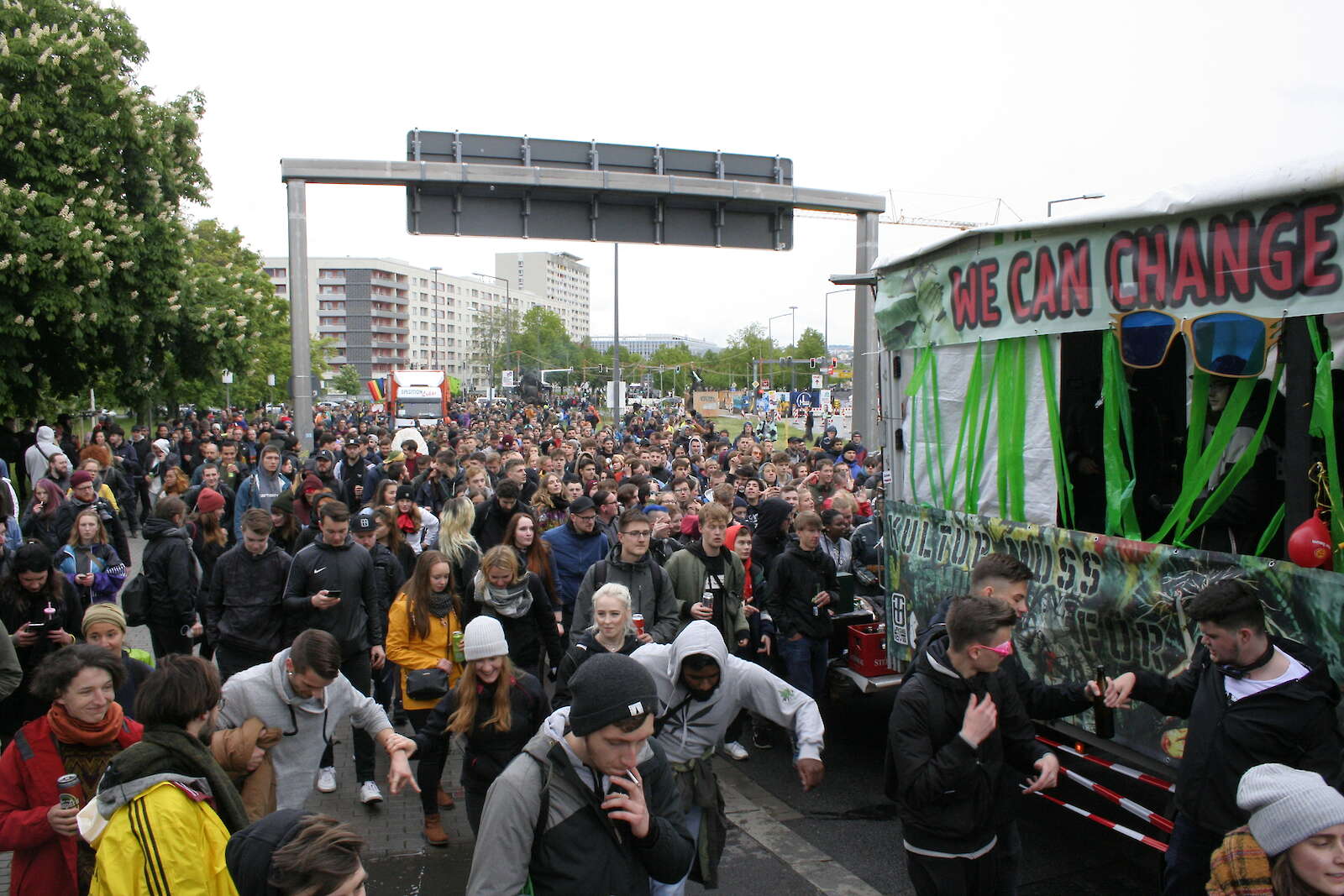
After the final talks & rally in Alaunpark, the colourful sea of people finally reached the „industrial area“ in the evening, and from here streamed on to the various clubs for which the scene is known for. Here the Tolerade after-parties were celebrated until late Sunday afternoon. All artists who performed here waived their fees for that night, so that the proceeds from the parties could be used to refinance the parade and the surplus money was donated to various projects and organizations.
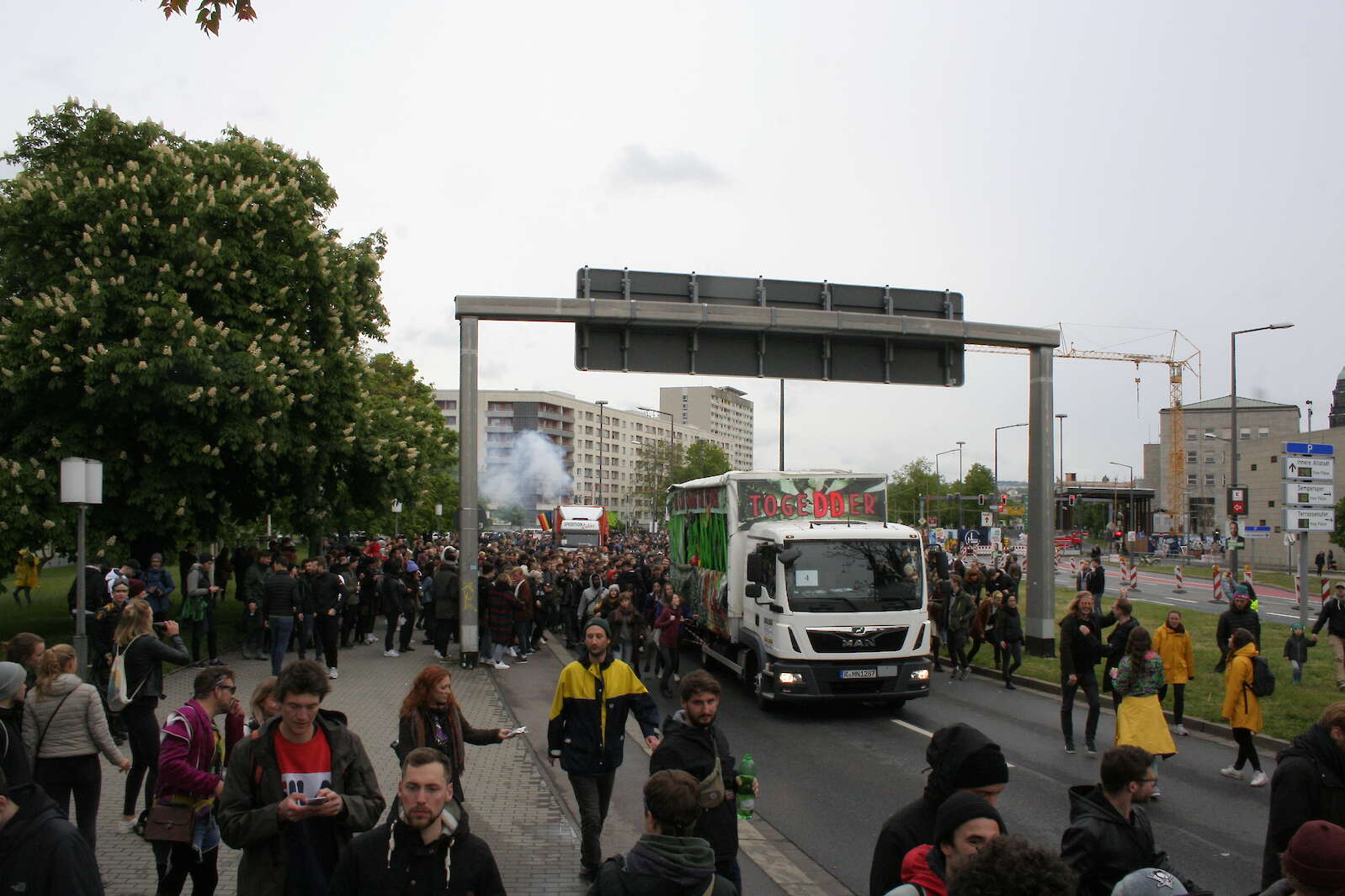
Even while the parade was a complete success, the challenges to us as a civil society remain. Elections are still imminent and the queasy feeling that the current AFD (German far right wing party) polls give us should remind everyone that there is no time left for idle thumb twiddling and lethargic waiting for what is going to happen next.
One can only hope that the Tolerade has reminded us all that there are still countless people who make themselves heard for a different concept of living together & help to forge new bonds between them and between the various projects and initiatives.
The defiance against the grey rain clouds that hung over the event until the sun could be seen again at the end of the demonstration can hopefully be read as a metaphor for a change in the social weather within Saxony and Dresden.
But to put it in the words of Tolerave: "Better to have bad weather every day than right-wing populists in parliament!“
23.05.2019, 08:31 @ ulrike
Categories: Dresden · politics · events · news // Tags: Tolerade · Subculture · Music · Politics










